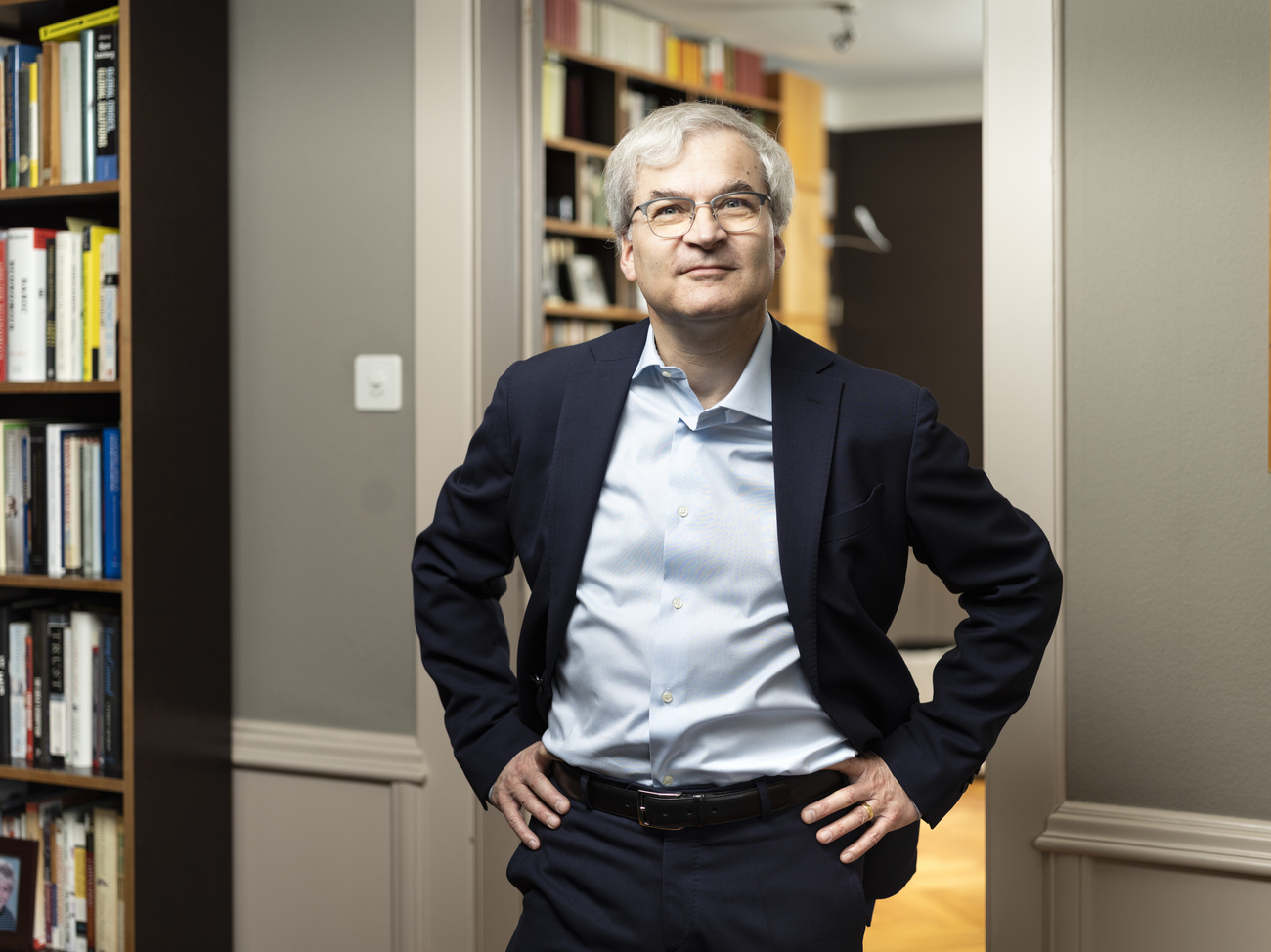
Postage stamps celebrate the Swiss Abroad

The Swiss Abroad community is the focus of a new series of stamps published by the Swiss Post and the Pro Patria foundation. The concept was developed by young people who took part in holiday camps run by the Organisation of the Swiss Abroad.
Pro Patria is the organisation responsible for designing and issuing stamps. It is no coincidence that the 2024 edition of the stamps focuses on the Swiss Abroad. The theme ties in with the 100th Congress of the Organisation of the Swiss Abroad (OSA), which will be held in Lucerne on July 11 and 13.
“We’ve been working with the OSA for a very long time,” Daniel Chardon, director of the Pro Patria Foundation, told SWI swissinfo.ch. “It’s a long tradition. We wanted to mark the 100th Congress.”
“It’s not just a question of paying tribute to an organisation, it’s about taking into account the 10% of the Swiss population who live outside our country’s borders,” OSA Director Ariane Rustichelli told swissinfo.ch. “It properly recognises the Swiss Abroad, who are sometimes not treated well, as was the case during the campaign for the last federal referendum,” said Rustichelli. She is referring to the backlash given to Swiss living abroad who receive pensions from the Swiss government.

More
Do Swiss pensioners living abroad ‘milk’ the system?
Iconic Swiss identity
The theme for the 2024 postage stamp collection were created by 124 Swiss youngsters who took part in the OSA’s 2023 summer camps. Sandra Liscio, a young woman from Lugano living in London, was chosen to design the stamps.
Sandra Liscio explains the inspiration behind the stamp designs with Pro Patria Director Daniel Chardon:
The first stamp External linkdepicts a fondue pot in the centre of a map of Switzerland with five hands dipping bread into the pot. Four out of the five hands depict the four language groups in Switzerland and the fifth hand reaching in from outside the map represents the Swiss Abroad. Around the map, drawings of iconic Swiss objects, such as a watch, a cow and a pocketknife, are illustrated.

While fondue seems like a Swiss cliché, Rustichelli says it was the Swiss youngsters who came up with the idea. “It may seem a bit cliché in Switzerland, but it’s seen differently abroad. For young people living abroad, fondue is an element of culture and identity. This remains a strong link with their country of origin,” she says.
The second stamp depicts a young woman with a black heart on her chest and an edelweiss crown on her head: a modernised representation of Helvetia. Behind her is a globe featuring a number of world-famous landmarks, including the Statue of Liberty, the pyramids of Egypt and the Great Wall of China.

“This stamp is a more modern take and represents the Swiss Abroad who live around the world,” says Rustichelli.
The stamps carry a hidden secret
But in the modern day of online communication, isn’t paying tribute to the Swiss Abroad through a postage stamp out-of-date? “The postage stamp has a slightly old-fashioned character,” says Rustichelli. But stamps still represents a romantic and important object, she says. When the first OSA Congress took place in 1918 the link between the Swiss Abroad and Switzerland was almost exclusively by letter. These postage stamp designs are a way of reminiscing.
However, these two stamps have a modern touch: they are heat reactive. The heart and the fondue pot are black, but when the stamps are touched, the heat from a person’s fingers causes a white cross to appear on a red background.
“The designer of the stamps, Sandra Liscio, insisted on using this technique,” says Chardon. It is meant to represent the warm relationship between the Swiss Abroad and their homeland, he says. While this technique is not a first for a stamp design, it is still unique characteristic for a Swiss stamp.
Adapted from French using DeepL/amva

In compliance with the JTI standards
More: SWI swissinfo.ch certified by the Journalism Trust Initiative
































You can find an overview of ongoing debates with our journalists here . Please join us!
If you want to start a conversation about a topic raised in this article or want to report factual errors, email us at english@swissinfo.ch.